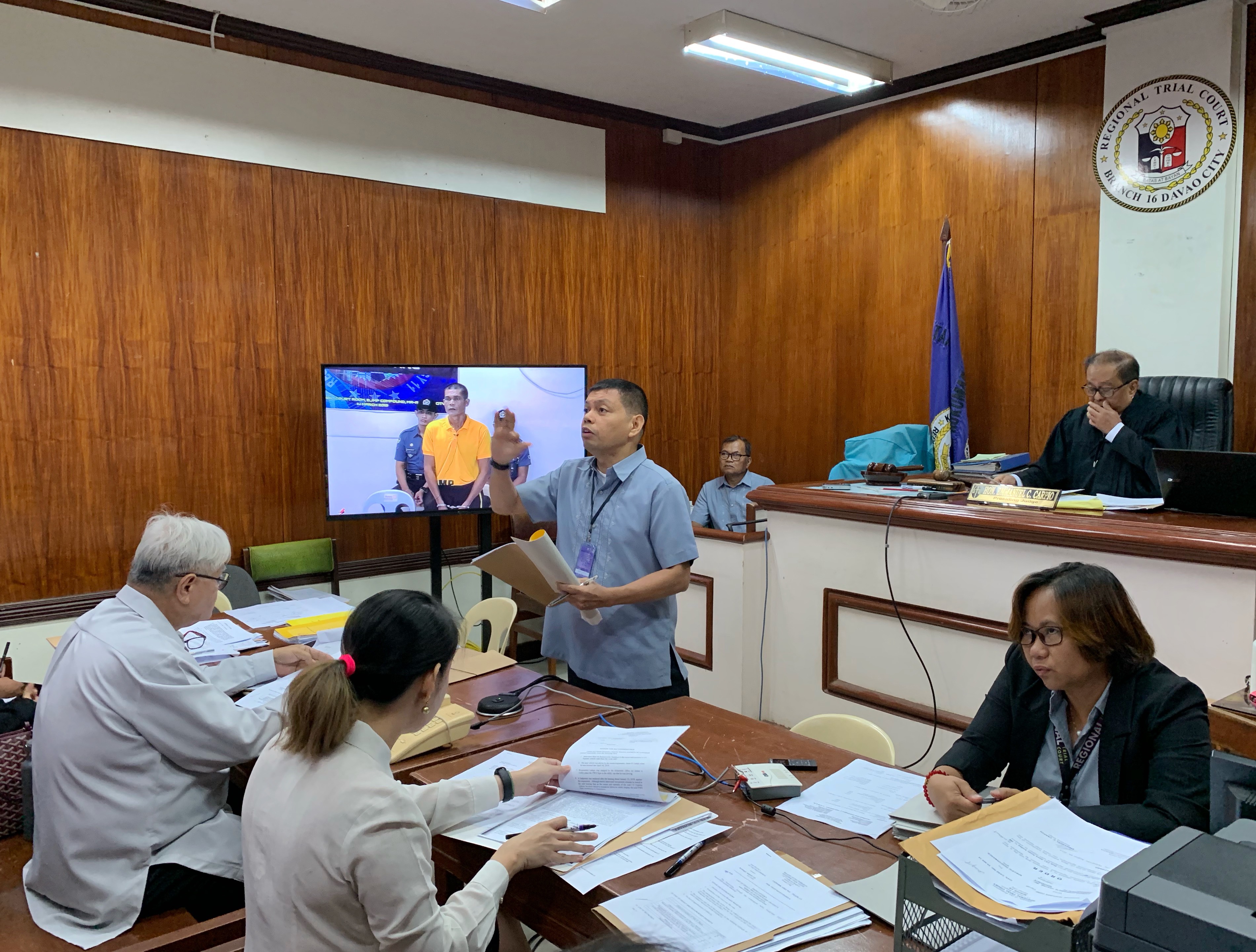A Davao City court became the venue of the first ever trial through videoconferencing technology on Monday.
The new remote videoconferencing technology is on test run specifically for cases involving Persons Deprived of Liberty (PDLs). The pilot testing involved detained inmates at the Bureau of Jail Management and Penology (BJMP) in Ma-a, Davao City and was conducted under the approved guidelines of the Supreme Court on the use of videoconferencing technology for inmates to allow the remote appearance and testimonies of those facing charges and detained in jail.
The videoconferencing aims to eliminate safety, security, and health risks of PDLs considered to be high-risks or inflicted with contagious disease.
Judge Emmanuel Carpio presided the first ever hearing using videoconferencing technology at the Davao City Regional Trial Court, Branch 16 for the arrangement of Leonilo Sumampong Gonzales for attempted multiple murder and pre-trial of Romart Mandi Uy for frustrated murder, who were at the Davao City jail court room at the BJMP compound.
The arraignment and pre-trial lasted in less than 15 minutes.
“This is a very momentous day for the courts because this is an initial project with BJMP who found the need for this videoconferencing trial with end purpose of securing the concerns not only on the part of the accused but also on the part of the judges, prosecution not to mention the savings on time and transportation in coming from the jail to the court back and forth,” Carpio said in an interview.
He said the teleconference initially covers high profile cases but there are instances also where the accused suffering from communicable diseases or special request on the accused with the recommendation of the jail warden, they can conduct trial by videoconference.
“You can just imagine you have to travel from MA-a especially now we have a problem. In Davao City this current flooding it may take so much time among the court employees and also the lawyers, judges and public in general,” Carpio said.
The Tele-hearing was proposed by the management of BJMP 11 on November 28, 2017 due to the number of seriously high valued targets such as Maute, Abu Sayaff, Moro Islamic Liberation Front (MILF), and New People’s Army (NPA) detained in the three jails in the city: Davao City Jail Main, Davao City Jail Annex, and Davao City Female Jail pose considerable threat to the security of the facility and community. One of the serious risks is the transport of the accused to trial. Also included are the number of PDLs who are sick with contagious diseases like tuberculosis and skin diseases that may spread inside the confines of the courts.
The BJMP management added that inmates who cannot travel to courts due to their illness affect their chances to be heard on their schedules.
The Tele-hearing cut back risks and decrease opportunities to escape or bring rescued along the way while also reducing the threat to health, lives, and limbs of all presence around these high valued targets.
On January 29, 2019 the Court en banc of the Supreme Court issued a resolution allowing the implementation and pilot-testing of the ‘Tele-hearing’ project between the three Davao City jails and the Hall of Justice in Davao City as well as the installation of necessary infrastructure and structured cabling inside the Hall of Justice.
The Tele-hearing will be implemented in all stages of active and pending criminal proceedings such as Arraignment, bail hearing, trial proper, until the promulgation of judgment involving terrorism and terrorism-related cases where the accused is diagnosed with a serious or grave medical condition as attested by satisfactory medical record.
On June 25, 2019 the Court en banc of the Supreme Court issued a resolution on the proposed guidelines on the use of videoconferencing.
Based on the resolution in-court appearance of PDLs considered to be high-risk or afflicted with highly contagious diseases has posed serious risks to the safety, security, lives and health of not only the accused and those charged with transporting them between the jail and court, but of changes, court personnel and the general public as well.
The guidelines on the use of videoconferencing technology for the remote appearance and testimony of certain PDL in jails and national penitentiaries include the rights of the accused to be present and defend in person at every stage of the proceedings, to testify as a witness in his or her own half, and to confront and cross-examine the witnesses against him or her at trial are deemed satisfied when such appearance and testimony are made remotely through videoconferencing.
Also the remote appearance and testimony of an accused in a videoconference proceeding shall closely resemble his or her otherwise in-person courtroom testimony and experience.
The project is part of Davao Justice Zone program that is also supported by GoJust, which provides the equipment and refurbishes the rooms.
“Right now we are still awaiting for the equipment and refurbishment of the rooms as it still a temporary set up,” said Ingrid Gorre, key expert case management specialist of GoJust, in an interview.
Gorre said they have three courts to be set up and BJMP will be a counterpart that will also have three cubicles of similar set up for them to able to conduct three simultaneous hearings at the same time.







